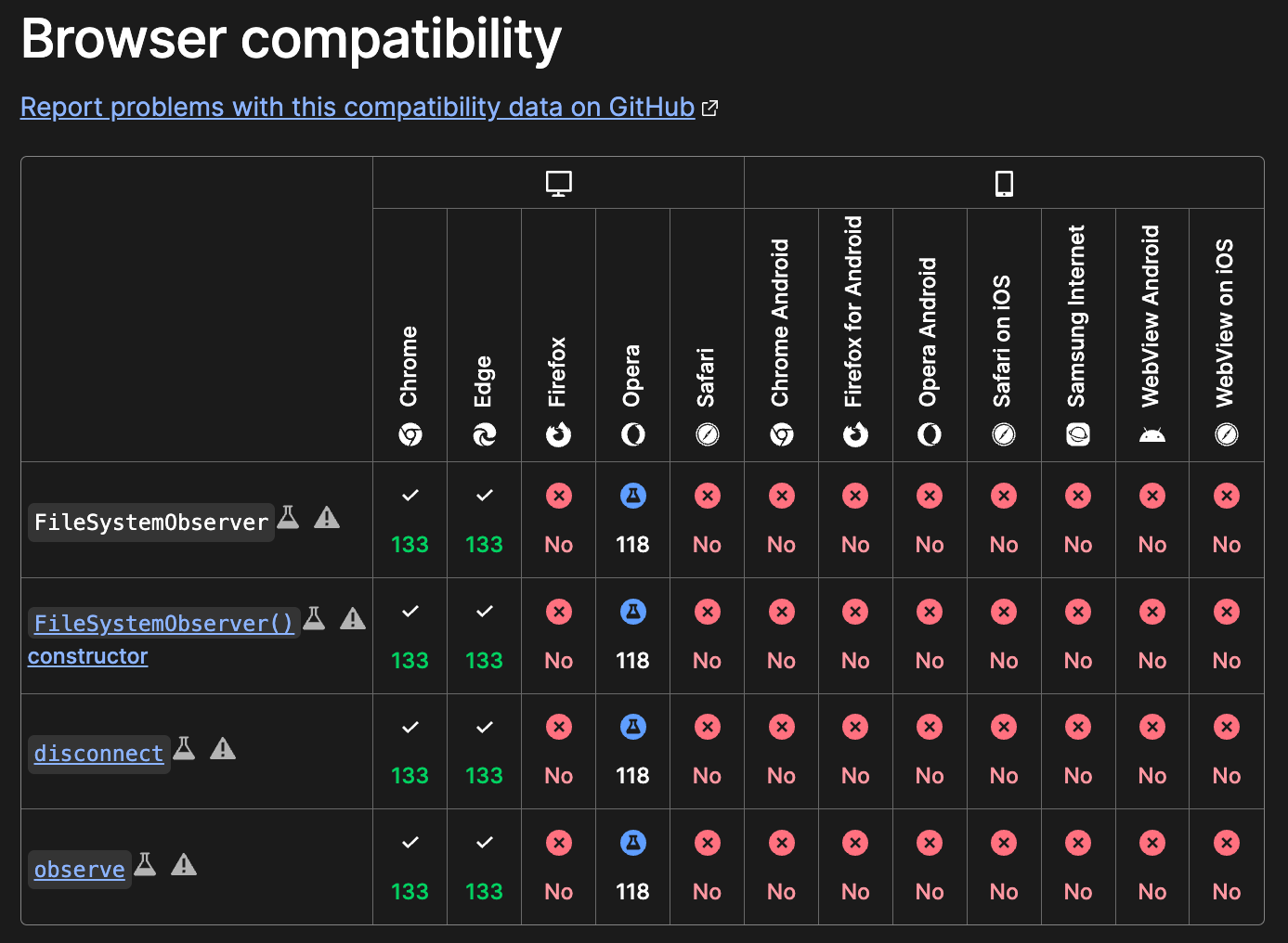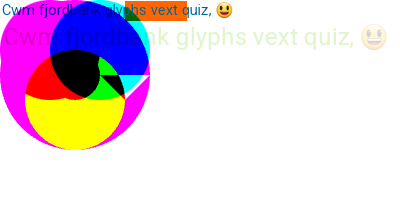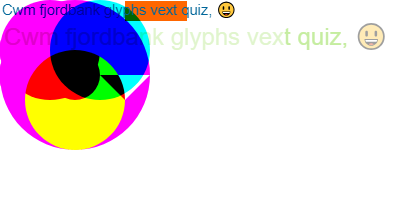In every HTTP request, the user agent header acts as a self-declared identity card for the client—typically a browser—sharing information about the software and platform supposedly making the request. It usually includes details like the browser name and version, operating system, and rendering engine. But crucially, this identity is entirely self-reported.
Because of this, the user agent string is a prime target for manipulation. Bots, scrapers, and automation tools often alter it to mimic legitimate traffic and avoid detection. For instance, a headless Chrome instance on Linux might disguise itself as a fully-fledged Chrome on Windows—masking its true nature with just a few characters.
That’s why modern bot detection doesn’t take the user agent at face value. Instead, it treats it as a claimed identity—one that must be cross-examined against other behavioral and fingerprinting signals. By comparing the user agent’s claims to observed traits—such as supported browser JavaScript features, canvas rendering, or TLS fingerprinting—detection engines can spot inconsistencies that suggest deception.
In this post, we explore the user agent’s role in browser fingerprinting and bot detection and show how to determine whether a client’s stated identity holds up under scrutiny—or starts to crack.
Parsing the user agent
While there is no official standard for the user agent structure, most browsers have converged towards a stable format that can be parsed using different libraries.
For example, when reading the user agent in the code snippet below, we can learn that the request comes from a Mac OS device, thanks to the Mac OS X and Macintosh substrings. The version of the OS claimed in the user agent is 10.15.7 (based on the 10_15_7 substring). However, this is likely not the real OS version. Indeed, this is an old Mac version, and it corresponds to a hard-coded version used as a placeholder in the user agent for privacy purposes to avoid leaking too much user information. The user agent also informs us that the request comes from a Chrome browser, whose major version is 133 (Chrome/133.0.0.0 ).
Mozilla/5.0 (Macintosh; Intel Mac OS X 10_15_7) AppleWebKit/537.36 (KHTML, like Gecko) Chrome/133.0.0.0 Safari/537.36The user agent is also helpful for mobile browsers. For example, the following user agent is linked to a Chrome browser version 126 running on an Android version 10.
Mozilla/5.0 (Linux; Android 10; K) AppleWebKit/537.36 (KHTML, like Gecko) Chrome/126.0.0.0 Mobile Safari/537.36Note that while the user agent can be parsed to infer information about the type of device making the request, it is considered a bad practice to rely on it to do feature detection. Instead of relying on the user agent, you should test the presence or absence of the feature you want to use in JavaScript.
Verifying the browser's authenticity
While we shouldn’t rely on the user agent for feature detection, it is key to verify whether or not it has been altered by a potential attacker.
To verify the nature of the browser and its associated version claimed in the user agent, we can test if certain features linked to a browser (and versions) are available. For example, the table below, taken from the MDN doc page of the FileSystemObserver interface, shows that the file system observer feature has been released recently with Chrome and Edge version 133. Note that the data related to feature availability in browsers is available in a structured way thanks to Caniuse.

A simple JavaScript challenge to detect a potential lie could be to test the presence or the absence of the FileSystemObserver feature and ensure it is consistent with the nature and the version of the browser claimed in the user agent. The JavaScript pseudocode of this test looks as follows:
const hasFileSystemObserverFeature = 'FileSystemObserver' in window;
const shouldHaveFileSystemObserverFeature = (isChrome || isEdge) && browserVersion >= 133;
if (!hasFileSystemObserverFeature && shouldHaveFileSystemObserverFeature) {
console.log('Inconsistency: Browser should have the FileSystemObserver feature')
}
if (hasFileSystemObserverFeature && !shouldHaveFileSystemObserverFeature) {
console.log('Inconsistency: Browser shouldnt have the FileSystemObserver feature')
}Verifying the OS authenticity
Verifying the OS claimed in the user agent is more challenging due to the sandboxed nature of browsers. While it is more difficult to know about the real nature of the OS, the browser still has a few APIs, such as navigator.platform , navigator.userAgentData.platform, that provide explicit information about the user's OS.
It is also possible to obtain OS information using other attributes whose value may leak information, such as the webGL renderer that may reveal the true nature of the OS. For example, on Mac you may have the following renderer ANGLE (Apple, ANGLE Metal Renderer: Apple M4 Pro, Unspecified Version).
But it’s not only about simple static strings revealing the nature of the OS. Indeed, several browser APIs and JavaScript fingerprinting challenges may have a value that depends on the OS.
For example, emojis included in canvas fingerprinting challenges may be rendered differently depending on the OS, as we can see in the 2 canvas images below, coming from two different devices. Thus, it is possible to link a given canvas value to a specific OS.


Similarly to what we did to verify the real browser nature, we can craft similar challenges to verify the OS consistency. The code snippet below shows a simple example that leverages the OS extracted from the user agent with the WebGL renderer. However, this kind of challenge can be generalized to any API/challenges whose value depends on the OS.
if (!isMacOS && webGLRenderer.includes('Apple')) {
console.log('Inconsistency: GPU linked to Mac but OS in user agent is not Mac')
}As we’ve discussed in this article, the user agent string represents a self-declared identity of the user’s browser and device. While verifying its consistency against other fingerprinting signals is a crucial first step in detecting spoofing and manipulation, it’s far from sufficient on its own.
Consider this: what if an attacker doesn’t lie? What if they truthfully report their browser and operating system in the User-Agent? In such cases, there are no inconsistencies to detect, and a system relying solely on this comparison would be easily bypassed.
Attackers are aware of this. They anticipate fingerprint consistency checks and design their evasion strategies accordingly. That’s why robust, real-world bot detection systems don’t stop at static checks. Instead, they go much further—combining behavioral analysis, proxy and network anomaly detection, and a rich set of contextual and dynamic fingerprinting challenges to uncover sophisticated threats.
In the end, trusting the user agent header—or any single signal—without deeper inspection is not just naive, it’s risky. Effective detection comes from layered defenses and comprehensive signal correlation, not surface-level assumptions.
Frequent user agent values
The code snippet below shows a list of the most common user agent values observed in the wild as of March 2025, ordered alphabetically:
GuzzleHttp/6.3.3 curl/7.29.0 PHP/7.4.33
Mozilla/5.0
Mozilla/5.0 (Linux; Android 10; K) AppleWebKit/537.36 (KHTML, like Gecko) Chrome/126.0.0.0 Mobile Safari/537.36
Mozilla/5.0 (Linux; Android 10; K) AppleWebKit/537.36 (KHTML, like Gecko) Chrome/131.0.0.0 Mobile Safari/537.36
Mozilla/5.0 (Linux; Android 10; K) AppleWebKit/537.36 (KHTML, like Gecko) Chrome/132.0.0.0 Mobile Safari/537.36
Mozilla/5.0 (Linux; Android 10; K) AppleWebKit/537.36 (KHTML, like Gecko) Chrome/132.0.0.0 Mobile Safari/537.36 OPR/87.0.0.0
Mozilla/5.0 (Linux; Android 10; K) AppleWebKit/537.36 (KHTML, like Gecko) Chrome/133.0.0.0 Mobile Safari/537.36
Mozilla/5.0 (Linux; Android 10; K) AppleWebKit/537.36 (KHTML, like Gecko) Chrome/133.0.0.0 Safari/537.36
Mozilla/5.0 (Linux; Android 10; K) AppleWebKit/537.36 (KHTML, like Gecko) Chrome/134.0.0.0 Mobile Safari/537.36
Mozilla/5.0 (Linux; Android 10; K) AppleWebKit/537.36 (KHTML, like Gecko) SamsungBrowser/27.0 Chrome/125.0.0.0 Mobile Safari/537.36
Mozilla/5.0 (Macintosh; Intel Mac OS X 10.15; rv:135.0) Gecko/20100101 Firefox/135.0
Mozilla/5.0 (Macintosh; Intel Mac OS X 10.15; rv:136.0) Gecko/20100101 Firefox/136.0
Mozilla/5.0 (Macintosh; Intel Mac OS X 10_15_7) AppleWebKit/537.36 (KHTML, like Gecko) Chrome/116.0.0.0 Safari/537.36
Mozilla/5.0 (Macintosh; Intel Mac OS X 10_15_7) AppleWebKit/537.36 (KHTML, like Gecko) Chrome/128.0.0.0 Safari/537.36
Mozilla/5.0 (Macintosh; Intel Mac OS X 10_15_7) AppleWebKit/537.36 (KHTML, like Gecko) Chrome/130.0.0.0 Safari/537.36
Mozilla/5.0 (Macintosh; Intel Mac OS X 10_15_7) AppleWebKit/537.36 (KHTML, like Gecko) Chrome/131.0.0.0 Safari/537.36
Mozilla/5.0 (Macintosh; Intel Mac OS X 10_15_7) AppleWebKit/537.36 (KHTML, like Gecko) Chrome/132.0.0.0 Safari/537.36
Mozilla/5.0 (Macintosh; Intel Mac OS X 10_15_7) AppleWebKit/537.36 (KHTML, like Gecko) Chrome/133.0.0.0 Safari/537.36
Mozilla/5.0 (Macintosh; Intel Mac OS X 10_15_7) AppleWebKit/537.36 (KHTML, like Gecko) Chrome/134.0.0.0 Safari/537.36
Mozilla/5.0 (Macintosh; Intel Mac OS X 10_15_7) AppleWebKit/605.1.15 (KHTML, like Gecko) Version/15.6.1 Safari/605.1.15
Mozilla/5.0 (Macintosh; Intel Mac OS X 10_15_7) AppleWebKit/605.1.15 (KHTML, like Gecko) Version/16.3 Safari/605.1.15
Mozilla/5.0 (Macintosh; Intel Mac OS X 10_15_7) AppleWebKit/605.1.15 (KHTML, like Gecko) Version/16.6 Safari/605.1.15
Mozilla/5.0 (Macintosh; Intel Mac OS X 10_15_7) AppleWebKit/605.1.15 (KHTML, like Gecko) Version/16.6.1 Safari/605.1.15
Mozilla/5.0 (Macintosh; Intel Mac OS X 10_15_7) AppleWebKit/605.1.15 (KHTML, like Gecko) Version/17.4.1 Safari/605.1.15
Mozilla/5.0 (Macintosh; Intel Mac OS X 10_15_7) AppleWebKit/605.1.15 (KHTML, like Gecko) Version/17.5 Safari/605.1.15
Mozilla/5.0 (Macintosh; Intel Mac OS X 10_15_7) AppleWebKit/605.1.15 (KHTML, like Gecko) Version/17.6 Safari/605.1.15
Mozilla/5.0 (Macintosh; Intel Mac OS X 10_15_7) AppleWebKit/605.1.15 (KHTML, like Gecko) Version/18.0.1 Safari/605.1.15
Mozilla/5.0 (Macintosh; Intel Mac OS X 10_15_7) AppleWebKit/605.1.15 (KHTML, like Gecko) Version/18.1 Safari/605.1.15
Mozilla/5.0 (Macintosh; Intel Mac OS X 10_15_7) AppleWebKit/605.1.15 (KHTML, like Gecko) Version/18.1.1 Safari/605.1.15
Mozilla/5.0 (Macintosh; Intel Mac OS X 10_15_7) AppleWebKit/605.1.15 (KHTML, like Gecko) Version/18.2 Safari/605.1.15
Mozilla/5.0 (Macintosh; Intel Mac OS X 10_15_7) AppleWebKit/605.1.15 (KHTML, like Gecko) Version/18.3 Safari/605.1.15
Mozilla/5.0 (Macintosh; Intel Mac OS X 10_9_2) AppleWebKit/537.36 (KHTML, like Gecko) Chrome/33.0.1750.152 Safari/537.36
Mozilla/5.0 (PlayStation; PlayStation 5/10.60) AppleWebKit/605.1.15 (KHTML, like Gecko) Version/17.0 Safari/605.1.15
Mozilla/5.0 (Windows NT 10.0; Win64; x64) AppleWebKit/537.36 (KHTML, like Gecko) Chrome/109.0.0.0 Safari/537.36
Mozilla/5.0 (Windows NT 10.0; Win64; x64) AppleWebKit/537.36 (KHTML, like Gecko) Chrome/120.0.0.0 Safari/537.36
Mozilla/5.0 (Windows NT 10.0; Win64; x64) AppleWebKit/537.36 (KHTML, like Gecko) Chrome/122.0.0.0 Safari/537.36
Mozilla/5.0 (Windows NT 10.0; Win64; x64) AppleWebKit/537.36 (KHTML, like Gecko) Chrome/122.0.6261.95 Safari/537.36
Mozilla/5.0 (Windows NT 10.0; Win64; x64) AppleWebKit/537.36 (KHTML, like Gecko) Chrome/124.0.0.0 Safari/537.36
Mozilla/5.0 (Windows NT 10.0; Win64; x64) AppleWebKit/537.36 (KHTML, like Gecko) Chrome/126.0.0.0 Safari/537.36
Mozilla/5.0 (Windows NT 10.0; Win64; x64) AppleWebKit/537.36 (KHTML, like Gecko) Chrome/127.0.0.0 Safari/537.36
Mozilla/5.0 (Windows NT 10.0; Win64; x64) AppleWebKit/537.36 (KHTML, like Gecko) Chrome/128.0.0.0 Safari/537.36
Mozilla/5.0 (Windows NT 10.0; Win64; x64) AppleWebKit/537.36 (KHTML, like Gecko) Chrome/129.0.0.0 Safari/537.36
Mozilla/5.0 (Windows NT 10.0; Win64; x64) AppleWebKit/537.36 (KHTML, like Gecko) Chrome/130.0.0.0 Safari/537.36
Mozilla/5.0 (Windows NT 10.0; Win64; x64) AppleWebKit/537.36 (KHTML, like Gecko) Chrome/131.0.0.0 Safari/537.36
Mozilla/5.0 (Windows NT 10.0; Win64; x64) AppleWebKit/537.36 (KHTML, like Gecko) Chrome/131.0.0.0 Safari/537.36 Avast/131.0.0.0
Mozilla/5.0 (Windows NT 10.0; Win64; x64) AppleWebKit/537.36 (KHTML, like Gecko) Chrome/131.0.0.0 Safari/537.36 Edg/131.0.0.0
Mozilla/5.0 (Windows NT 10.0; Win64; x64) AppleWebKit/537.36 (KHTML, like Gecko) Chrome/131.0.0.0 Safari/537.36 OPR/116.0.0.0
Mozilla/5.0 (Windows NT 10.0; Win64; x64) AppleWebKit/537.36 (KHTML, like Gecko) Chrome/131.0.0.0 Safari/537.36 OPR/116.0.0.0 (Edition std-1)
Mozilla/5.0 (Windows NT 10.0; Win64; x64) AppleWebKit/537.36 (KHTML, like Gecko) Chrome/131.0.0.0 Safari/537.36 OPR/116.0.0.0 (Edition std-2)
Mozilla/5.0 (Windows NT 10.0; Win64; x64) AppleWebKit/537.36 (KHTML, like Gecko) Chrome/132.0.0.0 Safari/537.36
Mozilla/5.0 (Windows NT 10.0; Win64; x64) AppleWebKit/537.36 (KHTML, like Gecko) Chrome/132.0.0.0 Safari/537.36 Edg/132.0.0.0
Mozilla/5.0 (Windows NT 10.0; Win64; x64) AppleWebKit/537.36 (KHTML, like Gecko) Chrome/132.0.0.0 Safari/537.36 OPR/117.0.0.0
Mozilla/5.0 (Windows NT 10.0; Win64; x64) AppleWebKit/537.36 (KHTML, like Gecko) Chrome/132.0.0.0 YaBrowser/25.2.0.0 Safari/537.36
Mozilla/5.0 (Windows NT 10.0; Win64; x64) AppleWebKit/537.36 (KHTML, like Gecko) Chrome/133.0.0.0 Safari/537.36
Mozilla/5.0 (Windows NT 10.0; Win64; x64) AppleWebKit/537.36 (KHTML, like Gecko) Chrome/133.0.0.0 Safari/537.36 Edg/133.0.0.0
Mozilla/5.0 (Windows NT 10.0; Win64; x64) AppleWebKit/537.36 (KHTML, like Gecko) Chrome/134.0.0.0 Safari/537.36
Mozilla/5.0 (Windows NT 10.0; Win64; x64) AppleWebKit/537.36 (KHTML, like Gecko) Chrome/134.0.0.0 Safari/537.36 Edg/134.0.0.0
Mozilla/5.0 (Windows NT 10.0; Win64; x64; rv:128.0) Gecko/20100101 Firefox/128.0
Mozilla/5.0 (Windows NT 10.0; Win64; x64; rv:135.0) Gecko/20100101 Firefox/135.0
Mozilla/5.0 (Windows NT 10.0; Win64; x64; rv:136.0) Gecko/20100101 Firefox/136.0
Mozilla/5.0 (X11; CrOS x86_64 14541.0.0) AppleWebKit/537.36 (KHTML, like Gecko) Chrome/126.0.0.0 Safari/537.36
Mozilla/5.0 (X11; CrOS x86_64 14541.0.0) AppleWebKit/537.36 (KHTML, like Gecko) Chrome/132.0.0.0 Safari/537.36
Mozilla/5.0 (X11; CrOS x86_64 14541.0.0) AppleWebKit/537.36 (KHTML, like Gecko) Chrome/133.0.0.0 Safari/537.36
Mozilla/5.0 (X11; Linux x86_64) AppleWebKit/537.36 (KHTML, like Gecko) Chrome/126.0.0.0 Safari/537.36
Mozilla/5.0 (X11; Linux x86_64) AppleWebKit/537.36 (KHTML, like Gecko) Chrome/131.0.0.0 Safari/537.36
Mozilla/5.0 (X11; Linux x86_64) AppleWebKit/537.36 (KHTML, like Gecko) Chrome/132.0.0.0 Safari/537.36
Mozilla/5.0 (X11; Linux x86_64) AppleWebKit/537.36 (KHTML, like Gecko) Chrome/133.0.0.0 Safari/537.36
Mozilla/5.0 (X11; Linux x86_64) AppleWebKit/537.36 (KHTML, like Gecko) Chrome/134.0.0.0 Safari/537.36
Mozilla/5.0 (X11; Linux x86_64; rv:128.0) Gecko/20100101 Firefox/128.0
Mozilla/5.0 (iPhone; CPU iPhone OS 15_8_3 like Mac OS X) AppleWebKit/605.1.15 (KHTML, like Gecko) Version/15.6.6 Mobile/15E148 Safari/604.1
Mozilla/5.0 (iPhone; CPU iPhone OS 16_3_1 like Mac OS X) AppleWebKit/605.1.15 (KHTML, like Gecko) Version/16.3 Mobile/15E148 Safari/604.1
Mozilla/5.0 (iPhone; CPU iPhone OS 16_6_1 like Mac OS X) AppleWebKit/605.1.15 (KHTML, like Gecko) Version/16.6 Mobile/15E148 Safari/604.1
Mozilla/5.0 (iPhone; CPU iPhone OS 16_7_10 like Mac OS X) AppleWebKit/605.1.15 (KHTML, like Gecko) Version/16.6 Mobile/15E148 Safari/604.1
Mozilla/5.0 (iPhone; CPU iPhone OS 18_1_1 like Mac OS X) AppleWebKit/605.1.15 (KHTML, like Gecko) Mobile/15E148
Mozilla/5.0 (iPhone; CPU iPhone OS 18_1_1 like Mac OS X) AppleWebKit/605.1.15 (KHTML, like Gecko) Version/18.1.1 Mobile/15E148 Safari/604.1
Mozilla/5.0 (iPhone; CPU iPhone OS 18_2 like Mac OS X) AppleWebKit/605.1.15 (KHTML, like Gecko) Version/18.2 Mobile/15E148 Safari/604.1
Mozilla/5.0 (iPhone; CPU iPhone OS 18_2_1 like Mac OS X) AppleWebKit/605.1.15 (KHTML, like Gecko) Version/18.2 Mobile/15E148 Safari/604.1
Mozilla/5.0 (iPhone; CPU iPhone OS 18_3 like Mac OS X) AppleWebKit/605.1.15 (KHTML, like Gecko) Version/18.3 Mobile/15E148 Safari/604.1
Mozilla/5.0 (iPhone; CPU iPhone OS 18_3_1 like Mac OS X) AppleWebKit/605.1.15 (KHTML, like Gecko) CriOS/133.0.6943.120 Mobile/15E148 Safari/604.1
Mozilla/5.0 (iPhone; CPU iPhone OS 18_3_1 like Mac OS X) AppleWebKit/605.1.15 (KHTML, like Gecko) CriOS/134.0.6998.33 Mobile/15E148 Safari/604.1
Mozilla/5.0 (iPhone; CPU iPhone OS 18_3_1 like Mac OS X) AppleWebKit/605.1.15 (KHTML, like Gecko) GSA/358.1.731895952 Mobile/15E148 Safari/604.1
Mozilla/5.0 (iPhone; CPU iPhone OS 18_3_1 like Mac OS X) AppleWebKit/605.1.15 (KHTML, like Gecko) Mobile/15E148
Mozilla/5.0 (iPhone; CPU iPhone OS 18_4 like Mac OS X) AppleWebKit/605.1.15 (KHTML, like Gecko) Version/18.4 Mobile/15E148 Safari/604.1
python-httpx/0.27.2
python-httpx/0.28.1
python-requests/2.32.3





